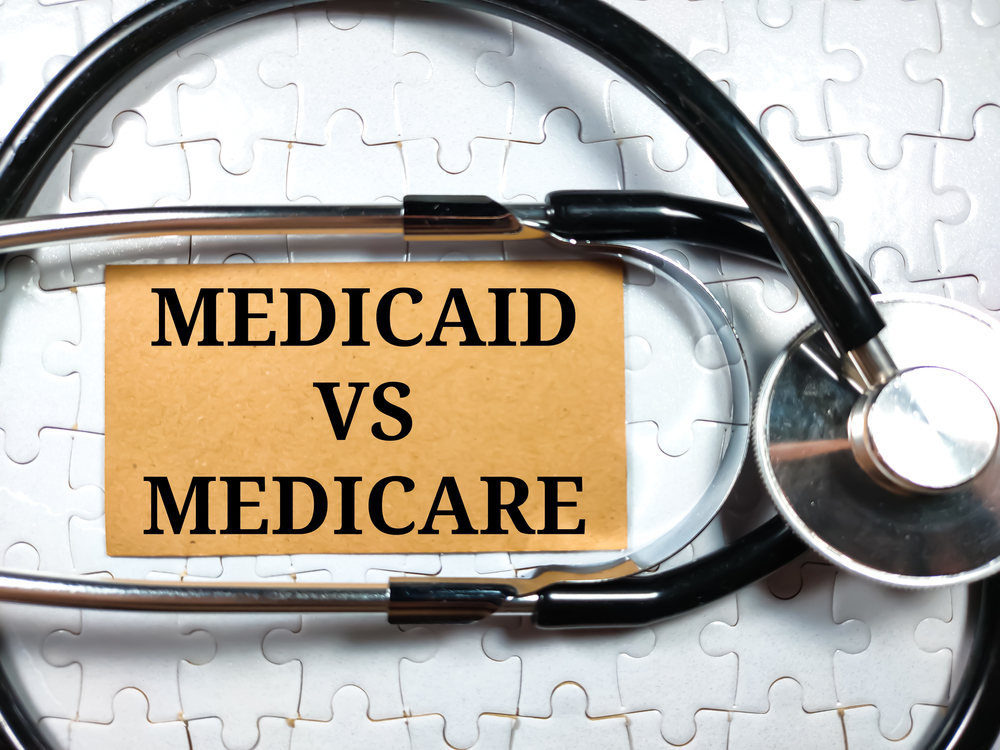2 min read
What’s What: Medicare vs Medicaid and How They are Related
The Rybar Group : Feb 7, 2023 12:07:00 PM

As providers continue to explore additional reimbursement opportunities, it is important to understand the similarities and differences of Medicare and Medicaid and how they intertwine.
Medicare vs Medicaid
Medicare is a federal health insurance for anyone age 65 and older, people of any age with certain disabilities, and people of any age with end-stage renal disease (ESRD). Medicaid is a joint federal and state program that provides healthcare coverage for individuals, families, and children with limited income and resources. Each state runs their own Medicaid program and has their own set of rules and eligibility requirements.
Medicare helps cover costs for Inpatient hospital care, skilled nursing facility (SNF) care, hospice care, and home health care through Part A. Doctors and other provider services, Outpatient care, and other services are covered under Medicare Part B.
While Medicare helps cover healthcare cost for enrollees, Medicaid covers most healthcare services such as doctor visits, Inpatient and Outpatient hospital services, mental health services, prescription drugs, and prenatal and maternity care with very little or no cost to the beneficiaries. Some states also have added services, such as dental, home and community-based care, physical therapy, and more.
Medicare and Medicaid are the largest healthcare insurance programs in the nation, which affect all healthcare providers. The reimbursement for both these programs is complex. Both programs must follow federal rules and regulations, with each state Medicaid program having additional regulations that it must follow. This includes reimbursement regulations that healthcare providers must follow in order to get paid from both of these programs. For hospitals, the Medicare cost report is required to be submitted to the Centers for Medicare and Medicaid Services (CMS) each year. Not only are these cost reports important for their Medicare reimbursement, which can result in additional reimbursement from Medicare, but the Medicare cost reports have an impact on Medicaid cost.
Per federal guidelines, providers cannot be paid by Medicaid more than their cost of providing services to Medicaid and uninsured populations. Most states, in one way or another, use the Medicare cost report cost-to-charge ratios to calculate Medicaid cost. For hospitals that receive the Medicaid Disproportionate Share Hospital (DSH) payments and other supplemental payments, the Medicare cost report cost-to-charge ratios are also used to calculate the uncompensated care costs. Any payments received in excess of cost must be recouped from the hospitals.
It's important to ensure that the Medicare cost report is completed correctly to ensure that Medicaid cost is being optimized and to avoid any recoupments.
-------------------------------------------------------------
Brooke Yowell is the Medicaid Reimbursement Manager at The Rybar Group. She has been instrumental in obtaining additional Medicaid enhanced reimbursement for providers, focusing Medicare and Medicaid DSH issues, Medicaid DSH Audits, Uncompensated Care, Medicaid Reimbursement Appeals, and assisting entities with high concentration of Medicare and Medicaid utilization.
Reach out to Brooke to learn more about the Medicaid programs and the related reimbursement opportunities. She can be reached at 810-853-6164 or via email at byowell@therybargroup.com.
Focusing exclusively in the healthcare arena, The Rybar Group brings in-depth industry knowledge to help clients create solutions designed to identify opportunities for revenue generation, isolate root causes for underperformance, accelerate cash in the door and support long-term margin improvement. The Rybar Group does not dabble in reimbursement and revenue cycle solutions; we specialize in it.